When selecting an RV battery for cold weather, it's crucial to choose one that maintains performance under freezing conditions. Lead-acid batteries can struggle below 32 degrees Fahrenheit, risking failure and reduced efficiency. AGM batteries, a type of lead-acid, offer better resistance to cold with more robust cold cranking amps (CCA) and stable performance across a wide temperature range, but they are heavier and potentially costlier. For those prioritizing lightweight options with superior energy density and consistent performance at subzero temperatures, lithium iron phosphate (LiFePO4) RV batteries are ideal, despite their higher initial cost and need for battery management systems to ensure longevity. Each type has its advantages and considerations; AGM batteries are spill-proof and durable, while LiFePO4 batteries offer longer lifespans and minimal self-discharge. Ultimately, the choice depends on your energy requirements, budget, and how often you'll be using your RV in cold environments. Proper insulation for all types of RV batteries is essential to maintain charge retention and ensure a reliable power supply during winter travel.
When the mercury dips and winter’s chill sets in, RVers face unique challenges, chief among them being the reliability of their RV batteries. This article delves into the top three RV batteries that excel in cold weather conditions, ensuring your power needs are met without fail. We’ll explore the distinct features of Deep-Cycle Lead Acid Batteries, AGM Batteries, and Lithium Iron Phosphate (LiFePO4) Batteries, each playing a pivotal role in RV power systems, particularly when temperatures plummet. From understanding the specific requirements of RV batteries in cold conditions to maintaining efficiency, this guide provides valuable insights for every RVer. Additionally, we’ll offer a comparative analysis of these battery types to help you make an informed decision on which is best suited for your winter travels.
- Understanding RV Battery Requirements in Cold Conditions
- Top Three RV Batteries for Optimal Performance in Freezing Temperatures
- Deep-Cycle Lead Acid Batteries: The Workhorses of RV Power Systems
- AGM (Absorbent Glass Mat) Batteries: A Robust Option for Harsh Winter Environments
- Lithium Iron Phosphate (LiFePO4) Batteries: The Future of Cold-Resistant RV Power
- Tips for Maintaining RV Battery Efficiency in Subzero Temperatures
- Comparative Analysis: Weighing the Pros and Cons of Each RV Battery Type in Winter
Understanding RV Battery Requirements in Cold Conditions
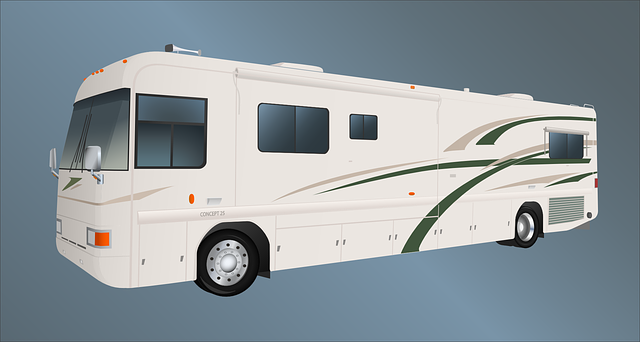
When operating in cold conditions, RV batteries require special considerations to maintain optimal performance. Deep-cycle RV batteries, commonly lead-acid or lithium-ion types, face unique challenges during winter months. Lead-acid batteries, such as flooded or AGM (Absorbent Glass Mat) models, can become sluggish in freezing temperatures because the chemical reactions that allow them to store and release energy slow down at lower temperatures. This reduction in performance is due to the viscosity of the electrolyte solution thickening, which impedes the flow of electrons necessary for charging and discharging cycles. Conversely, lithium RV batteries exhibit greater cold-resistant capabilities, as they do not rely on a liquid electrolyte; however, they still need insulation to prevent internal components from freezing. Proper insulation and temperature management are crucial for all RV battery types to ensure they hold their charge effectively and can withstand the demands of cold weather use. It’s essential to choose an RV battery that matches the energy needs of your setup and can endure the environmental conditions you’ll encounter on your travels, ensuring uninterrupted power and comfort even in the most frigid environments. When selecting an RV battery for cold weather, consider its capacity, cold cranking amps (CCA), and whether it comes with built-in heating options or requires additional insulation measures to protect against the chill and maintain performance levels.
Top Three RV Batteries for Optimal Performance in Freezing Temperatures
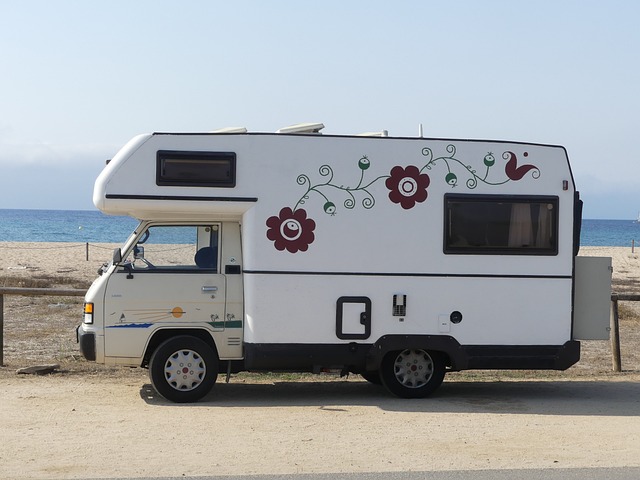
When the mercury dips and cold weather sets in, selecting the right RV battery becomes crucial for maintaining power supply in your recreational vehicle. RV batteries, particularly those exposed to freezing temperatures, must endure the challenge of reduced chemical activity within their cells. Among the top three RV batteries that excel in cold weather performance, the AGM (Absorbed Glass Mat) batteries stand out due to their robust construction and resistance to extreme conditions. They are sealed units that prevent electrolyte spillage and are less susceptible to freezing compared to traditional lead-acid batteries.
For those who prefer lithium technology, the lithium iron phosphate (LiFePO4) RV batteries offer unparalleled performance in cold climates. Their design avoids the drawbacks of other lithium types, like the lithium ion (Li-ion), which can suffer from reduced capacity at low temperatures. Lifepo4 batteries are known for their ability to maintain high energy density even below zero degrees Celsius, making them a reliable choice for RVers who frequent cold environments. Additionally, these batteries boast a longer lifespan and lighter weight compared to traditional deep-cycle batteries, which is an added advantage during travel. Whether you opt for the dependable AGM or the high-tech lithium iron phosphate, these top three RV batteries are engineered to handle the demands of cold weather with optimal performance, ensuring your RV experience remains smooth and power-efficient, regardless of the temperature outside.
Deep-Cycle Lead Acid Batteries: The Workhorses of RV Power Systems

When it comes to withstanding the challenges of cold weather, deep-cycle lead acid batteries consistently prove themselves as the workhorses of RV power systems. These robust batteries are specifically designed to handle frequent and deep discharges, making them an ideal choice for the sustained energy demands of recreational vehicles, especially during the colder months. Their heavy-plate construction and larger active mass enhance their performance in low temperatures compared to standard lead acid batteries. When the mercury dips, these batteries maintain their charge longer, ensuring that your RV’s appliances, lighting, and heating systems continue to operate reliably. The durability of deep-cycle lead acid batteries is also a significant advantage; they can withstand the rigors of repeated cycles, which is why they are favored by professionals and enthusiasts alike for their dependable service over extended periods. RV owners looking for reliable power in cold weather conditions should seriously consider the benefits that deep-cycle lead acid batteries bring to their RV battery systems.
AGM (Absorbent Glass Mat) Batteries: A Robust Option for Harsh Winter Environments
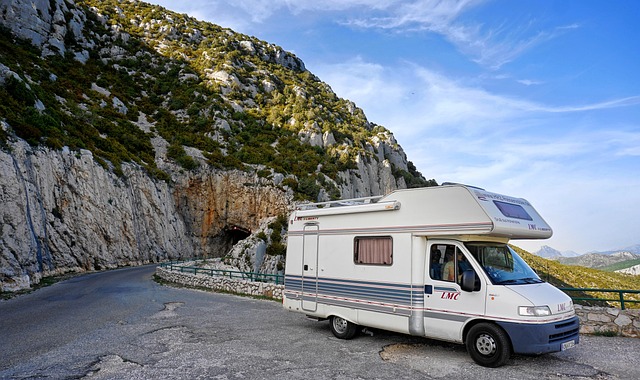
When braving the cold in an RV, selecting the right battery is paramount to ensure uninterrupted power supply for all your needs. AGM (Absorbent Glass Mat) batteries stand out as a robust option for those who face harsh winter environments. Unlike traditional lead-acid batteries, AGM batteries offer superior performance in low temperatures due to their non-hazardous electrolyte solution that doesn’t freeze, ensuring consistent power even when the mercury dips. Their design eliminates the risk of spillage and allows for a more efficient energy transfer, which is crucial when relying on your RV battery for heating, lighting, and other essential functions in cold weather conditions. The durability of AGM batteries also means less maintenance and a longer lifespan compared to other types of batteries, making them an economical choice for long-term use in RV applications. When it comes to maintaining power in the most challenging climates, AGM RV batteries are a reliable solution, offering peace of mind for RVers during their winter adventures.
Lithium Iron Phosphate (LiFePO4) Batteries: The Future of Cold-Resistant RV Power

RV batteries are subject to the whims of varying climates, and when it comes to cold weather, performance can dip significantly. Traditional lead-acid batteries often struggle in temperatures below freezing, but lithium iron phosphate (LiFePO4) batteries emerge as a robust solution for those who travel in colder regions. LiFePO4 batteries are renowned for their ability to maintain efficiency even at low temperatures. This is due to their unique chemistry that doesn’t suffer from the same performance issues as other types of batteries when exposed to cold conditions. They offer a stable discharge performance across a wide range of temperatures, ensuring RV owners can rely on their power supply without worrying about the battery’s capacity dropping sharply in winter months.
Moreover, LiFePO4 batteries boast a longer lifespan compared to traditional options, providing up to 2000-3000 cycles at 80% depth of discharge (DoD). Their high energy density means they can store more power, which is crucial for RVs that require a significant amount of electricity for heating, appliances, and electronics. The absence of memory effect and their lightweight design are additional advantages, making them an ideal choice for those seeking reliable rv battery performance, even in the most challenging cold weather conditions. These features make LiFePO4 batteries a compelling investment for RVers who prioritize longevity, reliability, and efficiency, particularly when the mercury dips.
Tips for Maintaining RV Battery Efficiency in Subzero Temperatures
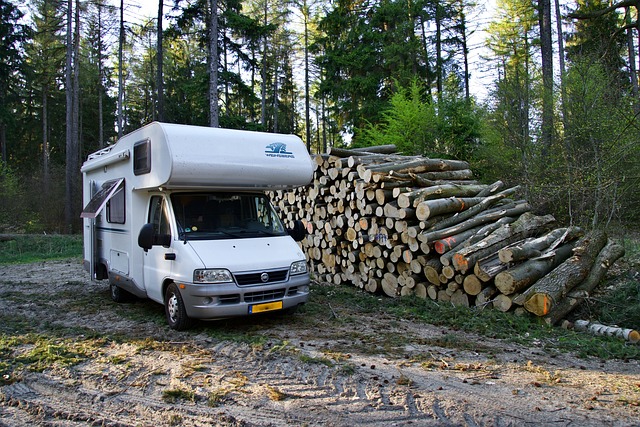
Comparative Analysis: Weighing the Pros and Cons of Each RV Battery Type in Winter
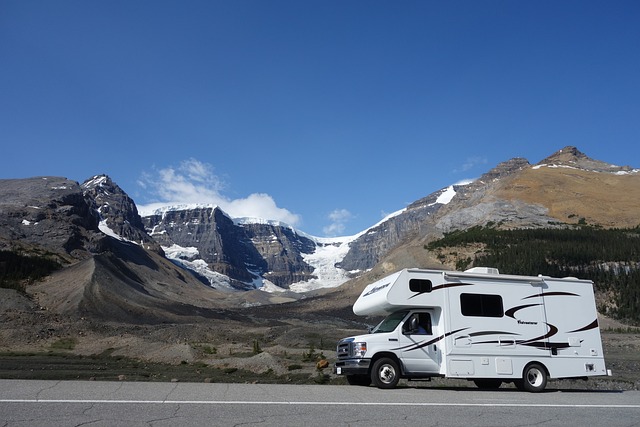
When selecting an RV battery for use in cold weather, it’s crucial to consider how each type performs under freezing conditions. Lead-acid batteries, traditionally used in RVs, can be susceptible to sulfation and reduced efficiency when temperatures plummet. Their performance degrades significantly as the mercury dips below 32 degrees Fahrenheit, which can lead to a higher risk of battery failure during winter months. On the other hand, absorbed glass mat (AGM) batteries offer improved cold-cranking amps (CCA) and are more resistant to the harsh effects of cold weather. AGM batteries also have the advantage of being spill-proof and maintaining a stable performance even when temperatures fluctuate. However, they tend to be heavier than their lead-acid counterparts and can come with a higher price tag.
Lithium iron phosphate (LiFePO4) RV batteries stand out as a top choice for cold climates due to their superior energy density and minimal self-discharge. These batteries provide consistent power even at low temperatures, ensuring your RV’s electronics remain operational during the winter season. Additionally, lithium batteries are lightweight and have a longer lifecycle compared to traditional lead-acid models. Yet, they are often more expensive upfront, which can be a consideration for budget-conscious consumers. When opting for lithium batteries, it’s also important to ensure proper battery management systems are in place to protect against overcharging and to maximize their lifespan. Overall, the choice between these RV battery types depends on factors such as your power requirements, budget, and the frequency of use in cold environments. It’s essential to weigh these pros and cons carefully to ensure a reliable power source throughout the winter months.
When braving the cold with an RV, selecting the right battery is crucial for maintaining power and comfort. Among the options available, the top three RV batteries that excel in frigid temperatures include deep-cycle lead acid, AGM, and lithium iron phosphate models. Each has its merits, from the reliability of deep-cycle lead acid to the maintenance-free nature of AGM batteries, and the cutting-edge performance of lithium iron phosphate cells. By understanding the unique requirements of RV batteries in cold conditions and following specific maintenance tips, RVers can ensure their power systems remain efficient, regardless of the thermometer reading. This article has highlighted the key factors to consider when choosing an RV battery for cold weather, helping you make an informed decision for your winter adventures. Remember, the right RV battery not only endures the cold but also powers your journey with reliability and peace of mind.
